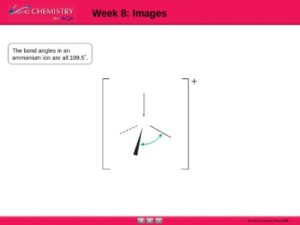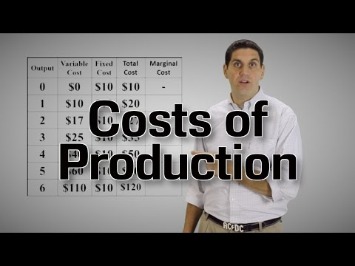
When choosing a certification, consider your career goals, the area of specialization you’re interested in, and the specific skills you want to develop or demonstrate. The salary and benefits for a bookkeeper can vary widely depending on factors like experience, qualifications, location, and the specific industry they work for. Accounting and bookkeeping are 2 vastly different professions despite the similarities and blurring of roles. Hopefully, this post helped clarify these differences and similarities to remove any confusion. In the U.S., an enrolled agent (EA) is a tax preparer authorized by the IRS to represent taxpayers.

Bookkeepers can help organize your day-to-day finances, such as your daily sales, expenses, and even payroll. An accountant, on the other hand, will take your bookkeeper’s nuanced records and translate them into tax preparation, and also offer advice about the health of your business and future planning. All small-business owners should consider hiring a professional accountant to handle their tax returns, at the least. When it comes to bookkeeping, some business owners choose to manage those tasks themselves. You may not mind balancing the books and handling financial transactions, and software like QuickBooks Online, FreshBooks and Xero can automate a significant amount of this work.
Key Considerations When Hiring a Bookkeeper or Accountant
Generally, accountants must hold a bachelor’s degree in accounting to earn the title. They may also have additional certifications like Certified Public Accountant (CPA). Working with an accountant or bookkeeper doesn’t mean losing control of your business. The best bookkeepers and accountants work with you, giving you visibility into your finances and helping you get a better understanding of your company. They support accountants in providing documentation and data during audits amortization vs depreciation or regulatory inspections, but they are not typically held directly accountable for financial reporting accuracy.
Business Acumen
- Understanding these distinctions is important for businesses seeking to optimize their financial management processes and leverage the unique contributions of both professionals.
- However, bookkeeping and accounting clerk jobs are expected to decline, with the BLS projecting a 6% fall in jobs over the same period.
- The salary and benefits for a bookkeeper can vary widely depending on factors like experience, qualifications, location, and the specific industry they work for.
- Ultimately, it is subjective, and some individuals may find bookkeeping more or less stressful based on their personal preferences and abilities to manage workload and pressure.
- An enrolled agent (EA) is a tax professional authorized by the United States government.
However, accounting firms charge substantially more than an accountant’s hourly rate because they must cover overhead costs and nonbillable time. Other factors that affect rates include an accountant’s experience, your state and the complexity of your accounting needs. Accountants typically earn a bachelor’s degree from an accredited college or university, but their qualifications vary by experience, licenses and certifications. A bookkeeper with professional certification demonstrates a commitment to the trade.
Effective time management and organizational skills are crucial to ensuring that financial tasks are completed accurately and on time. They should be able to prioritize tasks, meet deadlines, and manage their workload efficiently to avoid delays and ensure smooth financial operations. Advanced technologies, such as AI and data analytics, have revolutionized data analysis in bookkeeping and accounting. AI-powered algorithms can analyze large volumes of financial data, identify patterns, detect anomalies, and generate meaningful insights.
Scope and Focus of Bookkeeping vs Accounting
With bookkeepers, there are a lot of minutiae involved, and keen attention to detail is paramount. Accountants, on the other hand, tend to use the bookkeeper’s inputs to create financial statements and periodically review and analyze the financial information recorded by bookkeepers. Accountants are more specialized, so not every company has an in-house accountant. Bookkeepers don’t need any specific certifications, but you want to make sure whoever works on your company’s bookkeeping is extremely organized. Even if you are using an online system for bookkeeping, delegating an employee with keeping track of it on a daily basis is very important. However, certain aspects can contribute to stress in bookkeeping, such as tight deadlines, high transaction volumes, and the need for precision in recording and reconciling financial data.
Accountants offer financial analysis, strategic planning, tax planning & preparation, audit support, budgeting, forecasting, and financial advisory services. They can analyze financial data and provide details about business performance, identify growth opportunities, and ensure compliance with tax laws & regulatory requirements. In finance and business, bookkeeping and accounting are terms often used interchangeably but hold distinct roles and responsibilities.
They must meticulously review documents, record information accurately, and ensure that financial records are error-free. A keen eye for detail helps identify inconsistencies, detect errors, and maintain financial information’s integrity. Accurate bookkeeping lays the groundwork for practical financial analysis and decision-making. Reliable financial records provide the data needed for in-depth analysis, such as calculating key financial ratios, assessing profitability, and evaluating cash flow.
Your accountant will also use information from the ledger to prepare your tax documents, so it is crucial the two roles work together for accurate IRS reporting. Think of your bookkeeper as the one building the foundation of your businesses finances, and your accountant as the architect who designs a house around it, inspecting the foundation. A bookkeeper is the person on your team who handles your business’s books the most. intuit employment verification They are responsible for maintaining the ledger, whether that’s analog or via an automated accounting software, and ensures the books stay balanced.
Cash Flow Management
The Institute of Management Accountants (IMA) offers the CMA certification, focusing on financial planning, analysis, control, decision support, and professional ethics. CMAs are experts in financial management and strategic planning within an organization. To qualify as a CMA, an individual must pass a two-part exam covering the relevant topics. In the U.S., certified public accountants (CPAs) are accountants who have specific your digital assets training and education and pass a rigorous exam on business and accounting concepts and regulations. By recording financial transactions, bookkeepers track your finances so you can view at a glance how much money is entering and leaving your business.